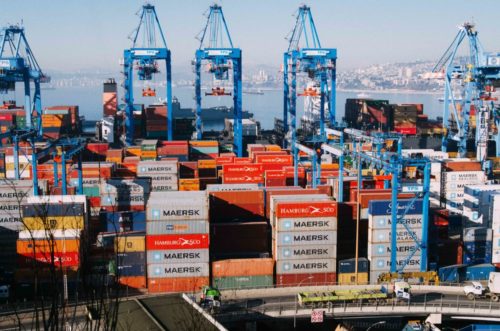
A worker’s strike and protests in the port of Valparaiso turned increasingly violent and spread to other ports along the nation’s Pacific coast on Tuesday.
The 32-day strike has complicating fruit exports in Chile’s flagship port at the start of summer.
Workers in Valparaiso, a key port for fruit shipments, first walked off the job in mid-November, demanding a bonus, more formal contracts and improved working conditions. Workers’ representatives and Terminal Pacifico Sur (TPS), which operates Valparaiso’s port, have met several times but have yet to reach agreement.
Protests spread briefly to several other ports overnight on Monday, according to statements from unions posted on Twitter and local media accounts.
Jorge Martinez, regional intendent for Valparaiso, told reporters on Tuesday that the Chilean police had raided union offices in Valparaiso to tame protests late on Monday after about 20 people were seen throwing Molotov cocktails from its roof.
“The country does not deserve this level of violence over a disagreement that should have been dealt with quickly,” Martinez said. “This is something that can affect our economy, tourism, our international reputation. We need an agreement now.”
Neither the union nor Terminal Pacifico Sur were immediately available for comment.
Local daily newspaper, El Mercurio, reported on Tuesday that the strike had caused fruit exports from Valparaiso to fall by 95 percent from the same period last year, according to statistics from Chile’s Federation of Fruit Producers (Fedefruta).
Valparaiso’s port handles approximately 55 percent of Chile’s fruit exports, including blueberries, nectarines, cherries, apples, kiwis and pears, according to the Chilean Blueberry Committee.